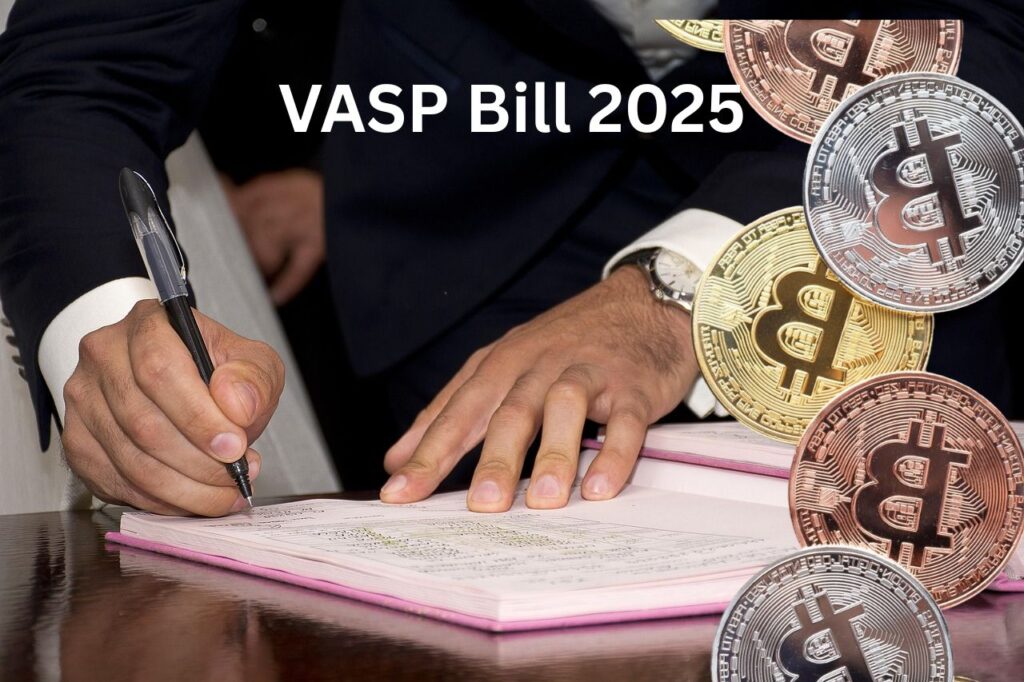
Nairobi, Kenya – October 15, 2025
Kenya has officially entered the era of regulated digital finance. The Virtual Asset Service Providers (VASP) Bill, 2025, was signed into law on October 15, 2025, at 9 AM following Presidential Assent, marking a watershed moment for the nation’s fast-growing virtual asset and blockchain ecosystem.
The new VASP Act establishes a comprehensive legal foundation for cryptocurrencies, stablecoins, tokenized assets, and Web3 innovation, firmly positioning Kenya as a continental leader in digital finance regulation. The Bill, which passed its second reading in Parliament last week, received final approval from Members of Parliament on Tuesday, October 14, before being formally signed into law today.
Who Will Oversee Virtual Assets in Kenya?
The Central Bank of Kenya (CBK) and the Capital Markets Authority (CMA) will serve as joint lead regulators, overseeing the issuance, exchange, and custody of virtual assets. This dual-framework approach aims to balance innovation with financial integrity, ensuring a transparent and well-supervised digital asset market.
Kuria Kimani, head of the National Assembly’s finance committee, said:
“This structure is designed to balance safety and innovation, ensuring that both investors and businesses have clear guidelines for operating in the digital asset market.”
According to the Act, both regulators will coordinate to supervise licensing, compliance, and market conduct for all registered Virtual Asset Service Providers operating in Kenya.

Bill Progress Over Time
The passage and assent of the VASP Bill follow months of stakeholder consultations and parliamentary debate.
Kimani Kuria, Chair of the National Assembly’s Finance and National Planning Committee, who recently spoke with Reuters, described the legislation as a “significant milestone in Kenya’s financial journey; a step into what many are calling a new grey area in digital finance.”“For years, Kenya has been a pioneer in mobile money and financial inclusion,” Kuria noted. “Now, we are setting the stage to extend that leadership into the virtual asset space, creating rules that promote innovation while safeguarding the integrity of our financial system.”
His remarks highlight the balancing act Kenya now faces between embracing emerging technologies and maintaining a stable, transparent financial ecosystem.
How Will the Treasury Drive Regulatory Clarity?
The Cabinet Secretary for the National Treasury has been granted authority to issue subsidiary regulations to operationalize the Act. These will cover critical areas such as:
- Stablecoin issuance and custody
- Tokenization of real-world assets
- Public token offerings (ICOs and STOs)
- Investment advisory and management services
- Virtual asset exchanges and trading platforms
- Capital, solvency, and insurance thresholds
- Conflict of interest and consumer protection rules
- Advertising, cybersecurity, and market conduct standards
- AML/CFT/CPF compliance measures
This provision ensures flexibility in policymaking, allowing the regulatory framework to evolve alongside emerging digital finance trends.

Where Innovation Meets Regulation
Kuria described the new law as “uncharted territory, a grey area where innovation meets regulation, and where prudence must guide progress.”
“Our duty as policymakers,” he said, “is to ensure that Kenya remains a safe and attractive destination for digital investment, without compromising our economic stability. We are building not just for today, but for the next generation of innovators and entrepreneurs who will define Africa’s digital economy.”
His comments underline the government’s forward-looking approach that seeks to nurture digital innovation while maintaining strong regulatory oversight.
A Leap for Digital Finance Governance in Africa
Kenya now joins the ranks of nations establishing comprehensive virtual asset regulation, alongside South Africa, Nigeria, and Mauritius, cementing its leadership in Africa’s fintech evolution.
Kuria stated:
“We hope Kenya can become Africa’s gateway for digital assets. By providing a regulated environment, we aim to turn the enthusiasm of our young people into a structured market that drives economic growth.”
The VASP Act aligns with global FATF recommendations and international best practices, signaling Kenya’s readiness to participate in cross-border virtual asset innovation while maintaining strict compliance standards.
Is the VASP Act the Catalyst for Fintech, and Institutional Growth?
For Kenya’s fintech ecosystem, the VASP Act represents the foundation for the next phase of digital financial innovation. By providing long-awaited legal certainty, the law unlocks opportunities in tokenization, stablecoin infrastructure, and compliant cross-border payment solutions.
Cross-border and remittance companies can now build products that seamlessly integrate with the traditional financial system, enabling faster, cheaper and more transparent international transfers. On the other hand, institutional players gain a regulated framework to launch custodial services, on/off-ramp solutions, and digital asset investment products.
The Act also enforces strict operational safeguards for all Virtual Asset Service Providers (VASPs), including:
- Segregation of client funds to protect user assets.
- Mandatory insurance coverage and access to Kenyan bank accounts for supervisory oversight.
- Regular inspections and compliance audits to ensure market integrity.
- Defined sanctions for noncompliant operators.
Together, these measures build trust and transparency; cornerstones for scaling cross-border and remittance services and positioning Kenya as East Africa’s digital finance hub.
Balancing Innovation and Consumer Protection
The law is designed around two pillars: responsible innovation and consumer safety. By embedding AML/CFT compliance, advertising standards, and market conduct obligations, Kenya aims to safeguard users while supporting innovation in token economies, blockchain applications, and decentralized finance (DeFi).
Experts believe the framework will also make Kenya more attractive for foreign virtual asset firms seeking a stable regulatory environment in East Africa.

Next Steps: Gazette, Licensing, and Industry Alignment
Following Presidential Assent, the Virtual Asset Service Providers (VASP) Act will be gazetted in the coming days, paving the way for regulatory agencies to issue detailed guidelines and licensing requirements.
Industry stakeholders will be required to align their operations with the new framework within a defined transition period.
With this landmark legislation, Kenya shifts from the periphery of the global crypto debate to the forefront of digital finance governance in Africa. The VASP Act positions the country not only as a rising fintech hub but also as a model for balancing innovation with accountability in a rapidly evolving digital economy.
The new law is expected to:
- Strengthen investor confidence in Kenya’s digital asset ecosystem.
- Encourage the establishment of licensed crypto exchanges locally.
- Safeguard users without stifling innovation and growth.
- Provide regulatory clarity for operating digital assets within a compliant environment.
As Kenya’s VASP Act ushers in a new era of regulated digital finance, Yogupay is building payment rails that connect compliance with innovation. Visit www.yogupay.com to see how we can empower your business to move money across borders safely, seamlessly, and within the law.